The Perqs of Being King: A Three-Day Birthday Holiday
Before beginning my first post I would like to thank John and Brenda Scanelli for their generous support of my internship this summer.
I arrived in Phnom Penh at 11 P.M. two Mondays ago. Even that late in the night, the heat and humidity struck me as soon as I walked out of the airport, so I was glad to find an auto-rickshaw ("tuk-tuk") immediately. The driver took me to the Emerald Morakat Hotel and I grabbed a little late-night street-food snack.
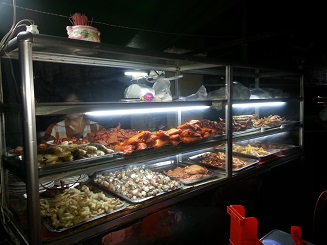
I had arrived during a three-day holiday celebrating the birthday of King Norodom Sihamoni. (I checked before I left, but "For the Birthday of His Royal Highness" is not one of Hallmark's "cards for all occassions," so, unfortunately, I arrived empty-handed.) Sihamoni is the son of the King Father Norodom Sihanouk and was elected by the Throne Council when his father abdicated in 2004. The contemporary history of Cambodia's monarchy is colored by the anti-monarchical revolutions in Cambodia during the 1970's. In 1970, the present king was only a 17-year-old student in Czechoslovakia when his father's government fell to General Lon Nol's coup; then, in 1977, when Sihamoni returned to Cambodia two years into the Khmer Rouge's reign, that regime put him under house arrest where he remained until the Vietnamese liberated Phnom Penh in 1979.
The morning of my second day I met a motorbike driver named Aat. He took me a half-hour outside of the city to see the "killing fields" at Choeung Ek. During Pol Pot's Democratic Kampuchea regime at least 1,000,000 Cambodians were executed or worked to death, and tens of thousands of those executions took place in the village of Choeung Ek. The sites of mass graves dotting an otherwise lush, peaceful landscape are surreal memorials of this genocide. For me, the most moving part was seeing the so-called magic tree. Cadres in the Angkar, as the Khmer Rouge leadership was known in Cambodia, placed loudspeakers in the branches of this tall tree and blasted recordings of conversations and traditional Cambodial songs. Their reasoning was sinister: both to simulate large party meetings in order to intimidate villagers in the surrounding area, and to stifle the cries of those condemned to die.
(Fields) (Mass Grave) ("Magic Tree")
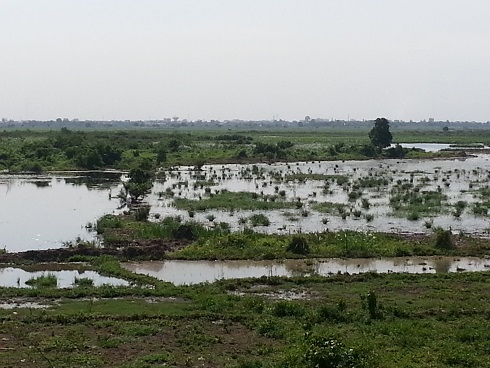
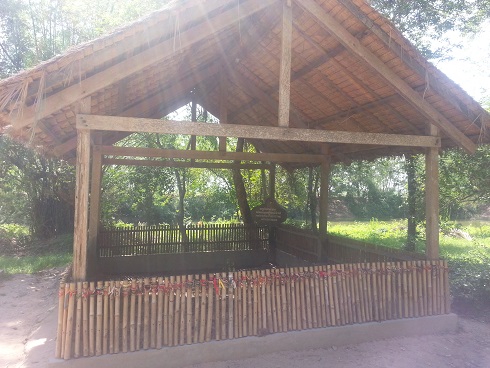
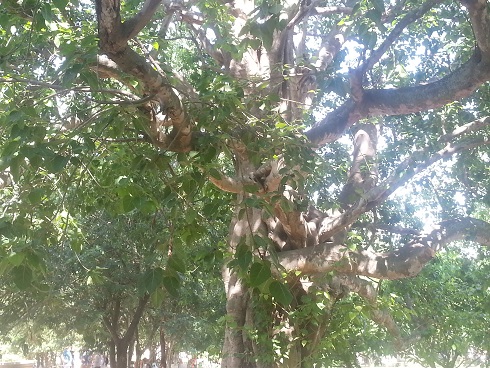
After seeing Choeung Ek, Aat invited me to come to his village, two hours outside of Phnom Penh, and have lunch with his family. His family lives in two adjacent houses and numbers at least fifteen people, including his cousin's in-laws! We ate chicken, beef, and Cambodian sour soup. In one of the funnier moments, Aat and his cousin argued about how Aat's name should be transliterated. His cousin thought it should be "Ath." During the meal, Aat's cousin told me about the difficulties rice-farming families face, especially in the downtime between winter harvesting and late-summer planting. In that time, farmers in this village either work in one of the nearby cement factories or rely on their children for support. For me, an afternoon lunch in cool shade under the stilted house was idyllic, but I could understand Aat's cousin's complaint that, for him, such days on end without profitable occupation are monotonous and spirit-sapping.
(Aat) (His Cows) (Lunch)
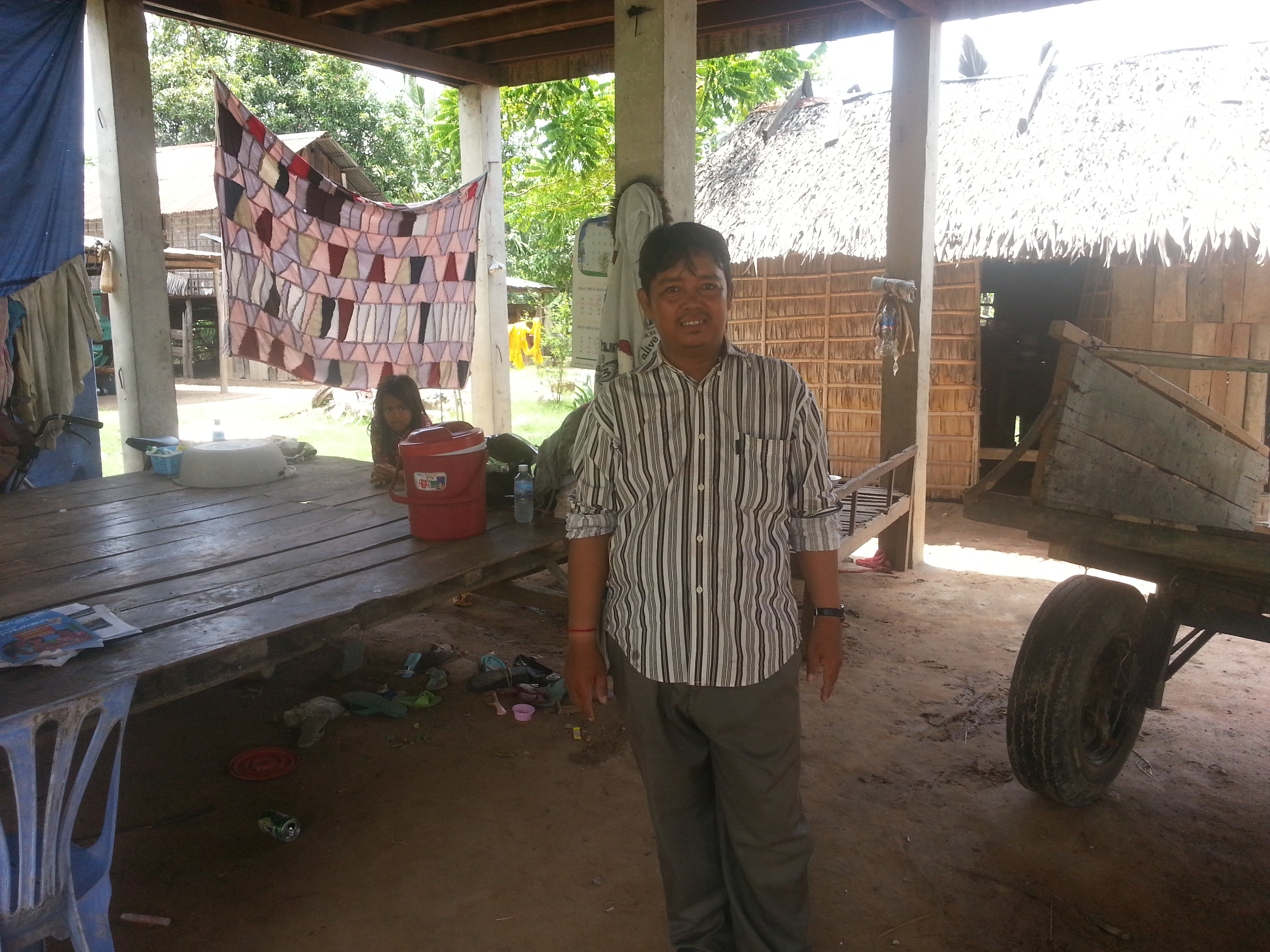
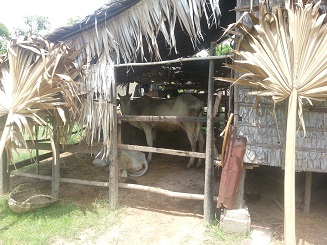

(His House) (Village Road) (Young Novices at Local Temple)
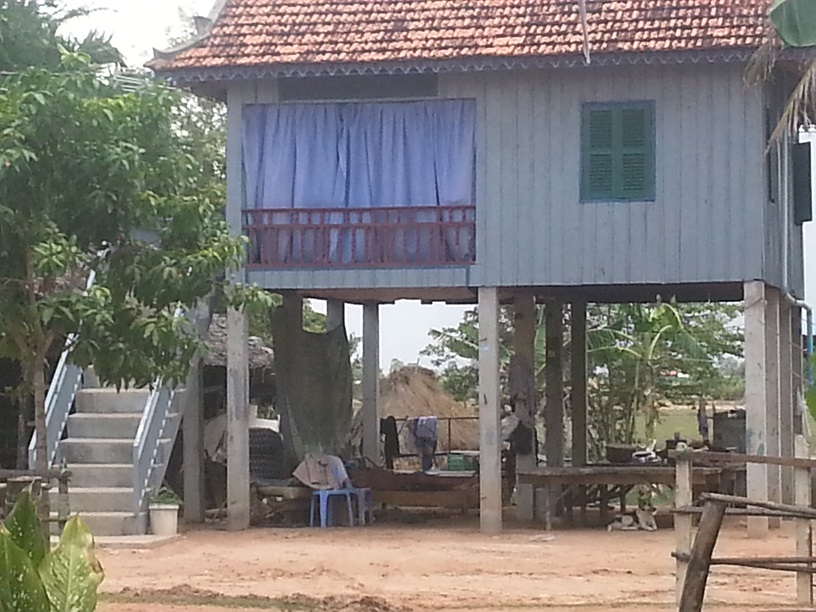
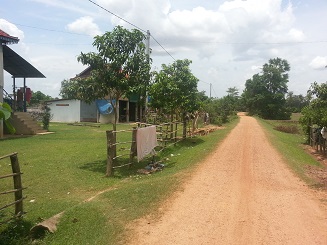
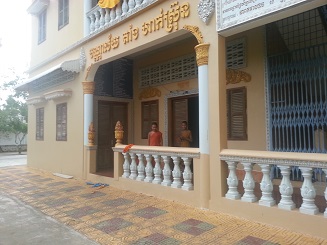
Click here (http://youtu.be/g2_YMU3CNa4) for a very shaky and windy (apologies!) video I took as we drove around the village. As you can tell from the dark clouds in the video, a heavy rain soon fell which made the 2 hour ride home to Phnom Penh on the back of Aat's moto absolutely delightful...
I began my internship with IBJ two Thursdays ago and I have just returned from a weeklong visit with four people from the Phnom Penh office to visit one of their "defender resource centers" in Mondulkiri province. These DRC's serve as hubs from which IBJ accomplishes its central mission: to inform Cambodians of their legal rights and to provide the option of free, well-trained defense lawyers to the accused. I will have more about IBJ's work and my experience in Mondulkiri in my next post.